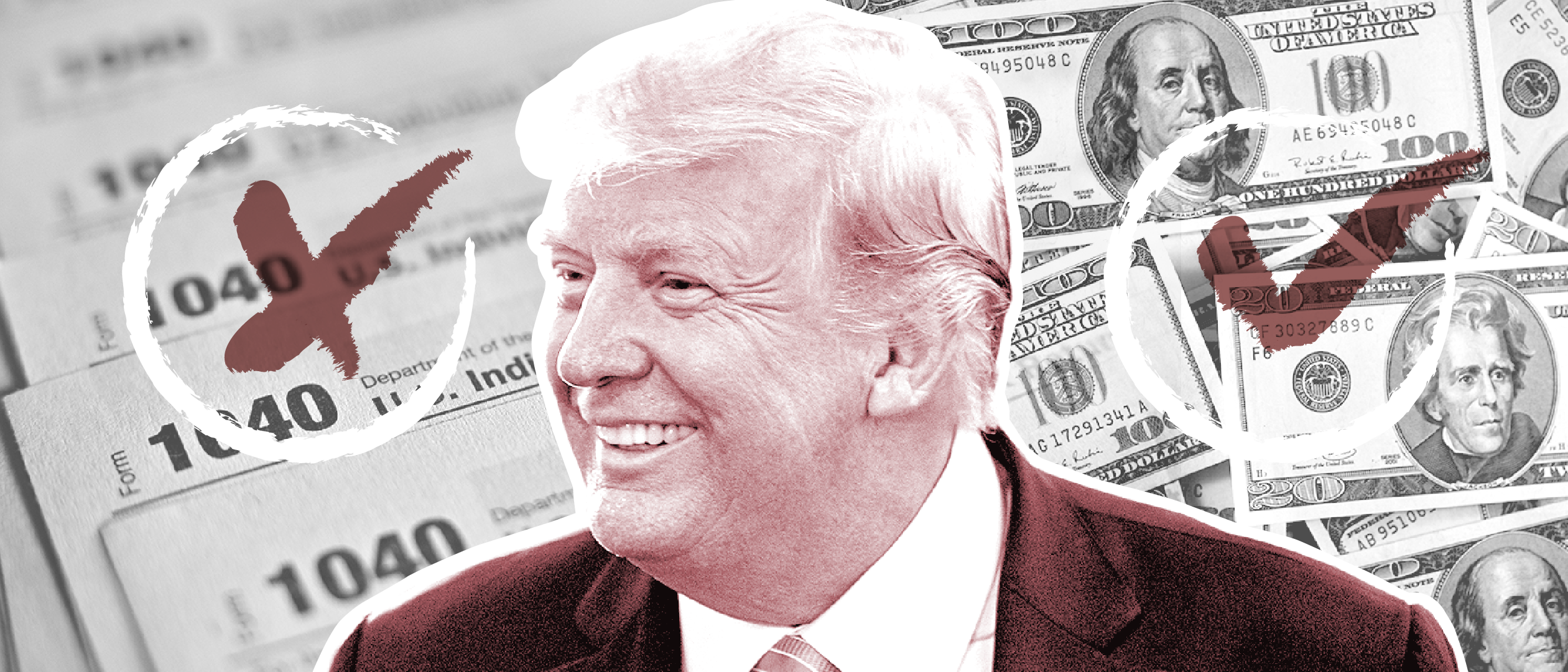The Growing National Debt and the Questionable Impact of the Tax Cut

About the People Mentioned
Donald Trump
Donald John Trump, born June 14, 1946, in Queens, New York, is an American businessman, media personality, and politician. He graduated from the University of Pennsylvania’s Wharton School in 1968 with a degree in economics. In 1971, he took over his family’s real estate business, renaming it the Trump Organization, through which he expanded into building and managing skyscrapers, hotels, casinos, and golf courses. Trump gained widespread fame as the host of the reality TV show *The Apprentice* from 2004 to 2015, which helped establish his public persona as a successful entrepreneur. Trump entered politics as a Republican and was elected the 45th president of the United States, serving from 2017 to 2021. His presidency was marked by significant policy actions including tax cuts, deregulation, the appointment of three Supreme Court justices, renegotiation of trade agreements (notably replacing NAFTA with the USMCA), and a focus on immigration control including border wall expansion. He withdrew the U.S. from international agreements such as the Paris Climate Accord and the Iran nuclear deal, and engaged in a trade war with China. His administration’s response to the COVID-19 pandemic was criticized for downplaying the virus’s severity. Trump was impeached twice by the House of Representatives—first in 2019 for abuse of power and obstruction, and again in 2021 for incitement of insurrection—but was acquitted by the Senate both times. After losing the 2020 election to Joe Biden, Trump challenged the results, culminating in the January 6, 2021, Capitol riot. He remains a central figure in American politics, having won the 2024 presidential election and returned as the 47th president in 2025, continuing to promote policies aimed at economic growth, border security, and military strength[1][2][3][4].
About the Organizations Mentioned
Moody's Ratings
Moody's Ratings, founded in 1909 by John Moody, is a leading global credit rating agency that provides independent, forward-looking opinions on credit risk for debt instruments issued by corporations, governments, and other borrowers. It helps more than 15,000 customers in 165 countries, including 97% of the Fortune 100, make informed borrowing and lending decisions by assessing the likelihood that debt obligations will be met as agreed[1][3]. The company’s credit ratings use a letter-based system to communicate the relative risk of default and potential financial loss. John Moody pioneered the modern bond credit rating system by publishing comprehensive manuals and analyses on stocks, bonds, and industrial securities. Moody's expanded rapidly through the early 20th century to cover the entire U.S. bond market, including state and local government bonds. The company was incorporated as Moody's Investors Service in 1914, establishing it as a trusted source of credit information alongside competitors like Standard & Poor's and Fitch[1][2]. Over its more than 115-year history, Moody's has evolved beyond credit ratings to include Moody's Analytics, which provides data, analytics, and technology solutions addressing complex risks such as supply chain disruptions, cyber threats, and regulatory compliance. This diversification supports businesses and governments navigating an increasingly interconnected and risky global environment[3][4]. Moody's reputation for meticulous research and early risk warnings is exemplified by its timely flagging of credit risks, such as the 2023 warning about Iron Hill Brewery prior to its 2025 bankruptcy[5]. Today, Moody's combines expert analysis with innovative technologies to deliver comprehensive insights that empower clients to act decisively amid uncertainty. Moody's current status as a publicly traded company with robust financial health and global influence reflects its central role in capital markets and risk assessment worldwide[4][6].

















